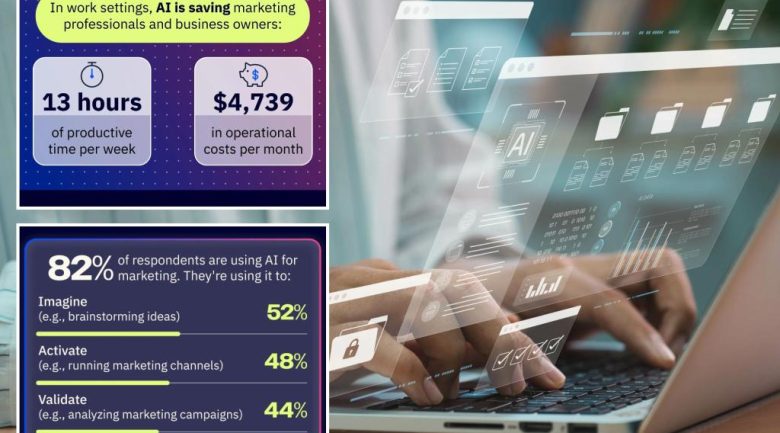“As technology continues to evolve, small businesses stand at the forefront of innovation,” writes columnist Nicole Smartt Serres.
In an era of rapid technological advancement, small businesses are discovering powerful tools that once seemed reserved for corporate giants. Today’s entrepreneurs are leveraging cutting-edge technologies to compete, innovate, and thrive in an increasingly digital marketplace.
Cloud Computing
Small businesses are embracing cloud technologies as a lifeline to scalability and efficiency. Services like Amazon Web Services and Microsoft Azure allow companies to access enterprise-level computing power without massive infrastructure investments. A local marketing firm in Santa Rosa can now store, manage, and analyze terabytes of data without purchasing expensive servers, dramatically reducing operational costs and increasing flexibility. Cloud computing enables remote work, real-time collaboration, and instant scalability that was unimaginable just a decade ago.
Artificial Intelligence (AI) Tools
AI has emerged as a game-changer for small businesses, offering intelligent solutions across multiple operational domains. ChatGPT and similar AI platforms help businesses generate marketing content, respond to customer inquiries, and streamline communication processes. Local restaurants use AI to create menu descriptions, while consulting firms leverage these tools to draft proposals and reports. The technology reduces labor costs, increases productivity, and provides sophisticated capabilities that level the playing field with larger competitors.
Internet of Things (IoT)
Smart devices are revolutionizing how small businesses operate and monitor their environments. Retailers use IoT sensors to track inventory in real-time, while manufacturing shops employ connected devices to monitor equipment performance and predict maintenance needs. A small bakery can now use smart thermometers to ensure perfect food storage, while a local construction company can track equipment location and usage with unprecedented precision. These technologies reduce waste, improve efficiency, and provide data-driven insights previously unavailable to smaller enterprises.
Blockchain Technology
Beyond cryptocurrency, blockchain is offering small businesses enhanced security and transparency. Local suppliers use blockchain to verify product authenticity, while service-based businesses implement smart contracts that automate payment processes. A small agricultural business can now track produce from farm to table, providing customers with complete transparency about product origins. The technology reduces fraud, eliminates intermediaries, and creates trust in business transactions.
Augmented Reality (AR)
Small businesses are discovering innovative applications for augmented reality that transform customer experiences. Furniture stores allow customers to visualize products in their own spaces using AR apps. Real estate agents provide virtual property tours, while clothing boutiques enable virtual try-on experiences. These technologies reduce return rates, enhance customer engagement, and provide immersive experiences that were once impossible for smaller businesses.
Cybersecurity Solutions
With increasing digital threats, small businesses are investing in sophisticated cybersecurity technologies. Advanced threat detection systems, AI-powered security tools, and comprehensive protection platforms help companies defend against potential breaches. These solutions provide enterprise-level protection at affordable prices, allowing even the smallest businesses to safeguard critical data and maintain customer trust.
5G Technology
High-speed mobile networks are transforming how small businesses operate and communicate. Food trucks can process payments instantly, field service technicians can upload real-time data, and remote workers can collaborate seamlessly. 5G enables faster communication, more reliable connections, and innovative mobile solutions that expand business capabilities beyond traditional limitations.
Robotic Process Automation (RPA)
Small businesses are using RPA to automate repetitive tasks, reducing human error and increasing efficiency. Accounting firms automatically process invoices, while customer service departments use chatbots to handle routine inquiries. These technologies allow small teams to accomplish more, redirecting human talent toward more strategic, creative tasks.
Edge Computing
Processing data closer to its source is revolutionizing how small businesses handle information. Retail stores can analyze customer behavior in real-time, while manufacturing businesses can monitor equipment performance with minimal latency. Edge computing provides faster, more efficient data processing that enables more immediate decision-making.
Predictive Analytics
Small businesses are leveraging data analysis tools to make more informed decisions. Local retailers predict inventory needs, service businesses forecast demand, and marketing teams optimize campaign strategies. These technologies transform raw data into actionable insights, allowing smaller companies to compete with larger, more resource-rich competitors.
As technology continues to evolve, small businesses stand at the forefront of innovation, proving that size is no longer a barrier to technological sophistication.




